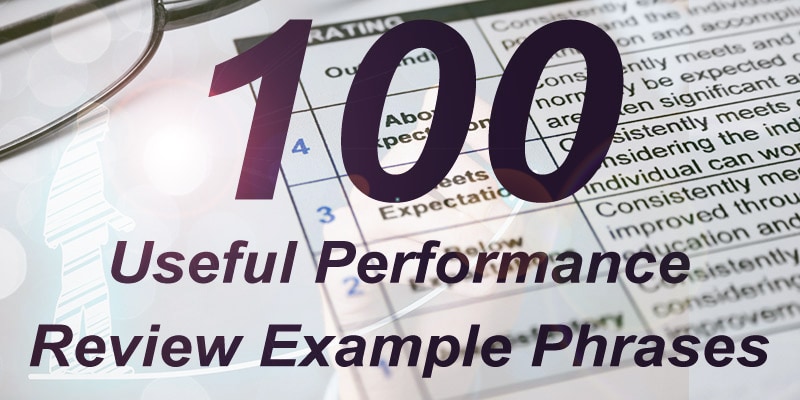Completing a self-evaluation as part of the performance review process is something most of us dread. No matter how many times you have been there before, it doesn’t get easier, right? Bragging about your achievements rarely comes naturally to most people. And highlighting any weaknesses even less so.
However, self-evaluation could and should be a positive experience. The benefits to you as the employee include the following:
Improving your manager’s perception of your performance
- Identifying development opportunities
- Highlighting your case for promotion
- Even putting you in line for a promotion or bonus
And there are several advantages to the business, such as:
- Discovering what motivates employees to do their best
- Feeding back to managers on team working
- Pinpointing knowledge or skills gaps in the workforce
- Supporting employee engagement
This post is essential reading if you are struggling with those blank boxes on the self-evaluation form. We take you through all you need to know for a positive outcome. And we also include some example self-evaluation phrases to get you started.
6 Tips For Effective Self-evaluation Assessments
Planning and preparation are essential to get the most out of the self-evaluation process. Before you can launch into the detail, here are five tips to help you prepare.
1. Give Yourself Plenty Of Time
It almost goes without saying but set aside plenty of time. Completing the self-evaluation 10 minutes before your scheduled performance review is unlikely to give you the best outcome.
Reflecting on 12 months’ worth of achievements or things that haven’t gone so well will take time. You will need to do some research to gather examples and data. You may also want to check in with colleagues. And make sure you have sufficient time to thoughtfully draft and edit your self-evaluation.
2. Be Specific
Try and avoid vague statements like ‘I’m the best salesperson in the team.’ Including numbers wherever possible provide more insight into your performance. For example, compare the statement above with the following specific one: ‘I consistently exceeded my monthly sales quota by an average of 10 percent.’ That says a lot more about what you have achieved.
3. Be Proud Of Your Achievements
This is an excellent opportunity to showcase all your achievements and accomplishments, so don’t be shy or understated. The self-evaluation should be an honest reflection of your contributions and shouldn’t be interpreted as bragging or boasting. Furthermore, for maximum impact, present your achievements in terms of how they have contributed to company goals. That way, you will be emphasizing your value to the company. This step is even more important if your employer’s performance review process affects salaries or bonuses.
4. Be Honest And Critical

- What could I have done better?
- What areas do I need to work on?
- How can I improve my contribution to the business?
This aspect of self-evaluation is usually the one that causes us the most headaches. However, it’s an opportunity to demonstrate your commitment to improvement. Self-awareness of weaknesses alongside the drive to continually improve is an attribute of high performers. And your manager will welcome your ability to be responsive and willingness to learn and grow.
However, try to use developmental language when discussing your areas for improvement. For example, instead of declaring ‘here’s an area where I failed,’ say something like this, ‘here’s an aspect I have identified I need to work on.’ And then go on to suggest a way forward.
5. Be Positive
This isn’t the time to be negative about colleagues. And it’s definitely not the time to take a pop at the shortcoming of managers. Bashing colleagues or executives is only likely to bite you in the proverbial at some later date.
The golden rule is to keep your comments 90 percent positive. And any negatives should be framed as areas for development rather than potentially harmful jibs about others.
6. Set Out Your Career Map
The performance review is your opportunity to discuss where you are with your career, not just your job. It’s a good idea to think about your long-term career goals and come up with a developmental plan.
Perhaps you want to be certified, develop additional skills, or intend to become a team leader yourself. Make things easier for your manager by identifying some professional development opportunities to help you get there. It could be an external course, mentoring opportunity, or membership of an organization such as Toastmasters. And offering to share your new knowledge and skills with colleagues back in the office makes it harder for your supervisor to say no.
Self-evaluation Examples
Perhaps you are a manager on the hunt for a self-evaluation template. Or maybe you are an employee without a company template to work from. Here’s a sample self-evaluation format covering the essential sections. Of course, you can adapt or add to the template to suit your requirements.
Achievements Since Last Assessment
This section covers all significant accomplishments. Tempting though it is to list every achievement, sticking to the highlights will have more impact. Again, be specific with hard data where possible. And be sure to link your achievements to overall company goals.
Areas of Improvement Since Last Assessment
Use this section to demonstrate how you have responded to issues previously identified. Showing the progress you have made is critical. And it better frames the areas for improvement you then go on to list for this year.
Goals
Your performance review will have set specific goals and targets to work on throughout the year. This section allows you to reflect on how you have performed against those goals. And it’s also an opportunity to propose some new ones. Ideally, goals should be a mix of job-specific and personal ones. For example, a personal goal could be to work on your presentation skills or learn more about digital marketing.
Personal Development Plan

The areas we have identified in this template are the minimum requirements. Some companies choose to add extra sections, such as company and personal core values or productivity metrics.
Self-evaluation For Performance Review Examples
Still struggling for words and phrases to fill in those blanks on the self-evaluation form? The following selection of performance review examples should give you some inspiration. And to make it even easier, we have grouped the examples by topic areas. Use these as a guide and tailor them to suit your circumstances.
Performance
- Over the past 12 months, I have worked on x number of projects, including [insert highlights]. And I met the timeframe and objectives for each one.
- I have exceeded my performance target [insert specific goal] by [insert number or percentage].
- I decreased [costs, customer turnover, etc.] by [insert number or percentage].
- I always look for opportunities to improve my performance [insert a standout example].
Reliability
- I regularly arrive at work and meetings on time and am always fully prepared.
- My work is completed with a high degree of accuracy, and I consistently meet deadlines.
- I ask for clarification or guidance when necessary.
Communication
- I am an effective communicator with colleagues at all levels of the organization, as shown by [insert specific example].
- When necessary, I can provide constructive criticism and am open to accepting feedback from colleagues and managers.
- Always willing to share information, I frequently keep team members and stakeholders informed.
Creativity And Innovation
- I regularly collaborate with colleagues to problem-solve and seek innovative solutions [insert an example].
- My idea to [insert example] has resulted in [x cost savings, the percentage increase in sales, etc.].
- I strive to find better ways to manage tasks and projects, such as [insert example].
- When faced with a problem or challenge, I am not afraid to ask for help and will brainstorm with colleagues to find a solution [insert example].
Teamwork
- At all times, I show respect for the opinions and feelings of team members.
- I promote cross-departmental collaboration at every opportunity. And I encourage the team to work together on common goals.
- I actively seek ways to keep the team on track and ensure important milestones are completed [insert example].
Customer Service
- I continually strive to improve the customer experience, such as [insert example].
- I contributed to the team’s increased customer satisfaction rate in the most recent customer survey [insert specific numbers].
- I regularly go above and beyond what’s necessary to provide a satisfactory outcome for the customer [insert example].
Personal Development Plan
- I keep up to date with developments in the industry by [attending conferences, listening to podcasts, reading journals, etc.]
- In the past 12 months, I have undertaken the following professional development training to develop my knowledge and skills [insert details].
- I share the knowledge and skills learned during professional development with colleagues by [lunch and learn workshops, making recommendations, suggesting improvements, etc.].
Performance Improvement
Here are some examples which demonstrate how to use development language to discuss areas for improvement in your performance.
- Often, I prefer to stick with what’s already working and am not always open to new ways of doing things.
- Although I am a good communicator within small groups, I find presenting information to large groups more challenging.
- I tend to try and resolve issues by myself rather than asking for help.
- I am generally very positive and upbeat and find it hard to hold the difficult conversations that sometimes are needed.
Self Evaluations: Main Takeaways
Thoughtful preparation and honest reflection are essential to a successful self-evaluation. The six tips we have identified will help you thoroughly prepare. And if you are still struggling for inspiration, the self-evaluation examples included will guide you.
Completing a self-evaluation shouldn’t make you break out in a cold sweat. It’s your time to shine and highlight your contribution to business success. And it could even see you getting that promotion or bonus.
Performance Reviews: Additional Resources
Further reading on the topic of performance reviews is available on the MyHub blog.
- Top 8 Performance Review Tips For Employees: Check out this post for more helpful tips on performance reviews. You will find out how to prepare as well as what to do in the meeting itself. There’s also a handy downloadable performance review checklist to ensure you are adequately prepared.
- Top Performance Review Tips: 8 Ways For Managers To Improve The Process: Essential reading for managers, this post will help you get in the right mindset for the performance review season. Included are lots of tips to ensure you get the best outcome for employees and the whole business.
- 100 Useful Performance Review Example Phrases: This post will be relevant for any time-pressed manager with several performance reviews to complete. Included are 100 useful performance review example phrases. You can simply adapt and customize the examples to suit your team members.
MyHub provides cloud-hosted intranet solutions to businesses of all sizes and industries worldwide. Designed by the experts with the non-expert in mind, our intranets are super easy to deploy and manage. Plus, they are packed full of powerful features and tools for more efficient and effective business operations. Sign up for a free demo and 14-day trial and explore the possibilities.


 Improving your manager’s perception of your performance
Improving your manager’s perception of your performance





